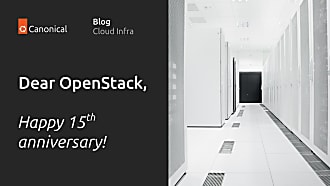Kris Sharma
on 4 May 2022
Cost optimised private cloud for financial services

Why private clouds?
Regulatory compliance and data privacy requirements require financial institutions (FIs) to consider carefully where their applications are running and where the customer data is stored. The data protection and data sovereignty laws in most countries require an enterprise to keep data in certain geographic locations. PCI Data Security Standard, for example, regulates the way the customer and financial transactions data is stored and transmitted. While various regulatory compliance and security standards do not prevent the data from being stored in the public cloud, the process of remaining compliant is simplified by storing sensitive customer and financial data in the private cloud. A private cloud is thus a key component of hybrid multi-cloud strategy adopted by various financial institutions.
Private cloud optimisation based on price-performance
Cost optimisation is one of the key drivers for hybrid multi- cloud adoption in the financial services sector. Embracing a mix of public and private cloud platforms provides financial institutions not only an ROI advantage over other models but also promotes FIs’ IT teams to hosts their application workloads in the right environment based on the application use case. In addition, it allows organisations to use the best tools for the job, rather than relying on a single vendor. A well-architected private cloud is a cost effective extension to the public cloud infrastructure that ensures reduced long-term total cost of ownership (TCO).
A private cloud implementation does require CapEx spend upfront but it can be configured for the best price-performance, while ensuring the required capacity. Combined with lower license and subscription costs, and full automation of infrastructure deployment and post-deployment operations, the optimal private cloud architecture leads to maximum CapEx and OpEx efficiency. As a result, the surplus budget allows financial institutions to innovate and offer better services to their customers.
Choosing the optimal architecture ensures maximum efficiency of the CapEx cost and designing the cloud for optimal operations and optimal price helps to lower yearly OpEx cost. Although hardware choices are important and its price usually represents a significant part of the initial investment in the private cloud build, organisations should not underestimate OpEx costs associated with post-deployment maintenance of the private cloud which include the cost of software licenses and day N operations. Financial institutions should therefore take into account factors such as code openness, pricing structure transparency and operations automation when considering private cloud build. Optimising the above factors enable predictable budgeting and helps FIs to avoid costly surprises post-deployment of the private cloud.
Open infrastructure stack
When it comes to the private cloud implementation, Canonical leverages the open infrastructure stack. This stack, shown in the exhibit below, consists of various open source technologies and covers all layers of the infrastructure, from bare metal to application workloads. Canonical’s approach is to leverage the best-of-breed technologies and offers full-stack support under a single subscription.

At the heart of open infrastructure stack is OpenStack. Being the most popular open source platform for private cloud implementation, OpenStack manages distributed compute, network and storage resources, and using virtualisation technologies enables allocation of them to VMs through a self-service portal. OpenStack can be easily extended to have a containerisation layer, based on Kubernetes, running on top of it.
Canonical services for private cloud implementation
Canonical provides a wide range of commercial services for enterprise customers. These include consulting services, commercial support, and fully managed services. Financial institutions can now leverage all the benefits of open source technologies and be assured that their private cloud infrastructure running on open infrastructure stack meets their service level agreements (SLAs).
Canonical provides financial institutions four levels of commercial support for the open infrastructure stack:
- Essential – Includes security updates, hardening and kernel livepatch
- Standard – Extends Essential with phone and ticket support during regular office hours
- Advanced – Extends Standard with 24/7 support
- Fully managed – The entire stack is monitored, managed and operated by the Canonical team of cloud experts. This also includes incident and problem resolution, upgrades and day-to-day operations
Canonical maintains a reference architecture and reference hardware documents which outline detailed recommendations for price-performance private cloud implementation.



